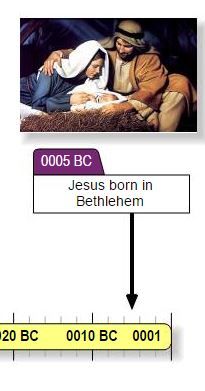We can see that the Israelites were troubled. Having set the stage, let me quickly give my opinion about the Pharisees.
IMO: They were thinking along these lines:
Fair_U_See1: "Hmmmm.... There's something wrong, guys!"
Phar_U_See2: "No kidding. God is more than strangely silent for so long."
Fair_U_See1: "What do you think is happening?"
Phar_U_See2: "It must be us. We are indeed a stubborn and rebellious people. It is as God has declared."
____________________________
Their reasoning continued,
"It must be man, God is never to blame."
It must be sin! Let's repent and live upright lives. That way we will become so holy that God will have to respond to our efforts. He can not lie and He is the same, yesterday, today and tomorrow. What he promised Moses will be seen by our generation. We can force God to keep His part of the agreement simply by keeping our end of the deal.
They were looking for a Prophet who would lead Israel into the place God had told them about. They were looking for a Messiah. Glory would be theirs. This is the origin of the thought,
"Get away for me, for I am holier than thou." (They actually said that.) Right after their ritual cleansing and purification rites. The Pharisees were going to keep the law down to the nth degree and that would compel God to return to the temple. It was man's sin that prevented
G-d from doing what He promised. They were so holy they would not even speak the name or title of
G-d. Woo-de-who? Woo-de-me!
Jesus taught that we are to,
"Watch out for the leaven of the Pharisees." Matthew 16:12 and the disciples understood he wasn't talking about breadmaking but instead the teachings of the Pharisees (proud men who thought they were better, holier and more righteous than others) and Saducees ('
Sad_U_See,' who taught there was no resurrection).
Consider the example of the Pharisee who prayed (to himself!) found in
Luke 18:11-13 (ESV), right?
Jesus praised the humility of the tax-collector and said he was more righteous than the religious leader. Why?
“Because everyone that exalts himself will be humiliated, but he that humbles himself will be exalted.” Luke 18:14
More stuff to think about:
- The Pharisees liked the best seats in the assemblies. They wanted to attract attention to themselves and show how 'special' they were to God and man.
- Their ways made things harder for the common man. Their laws were based on their own traditions and went further than God required. For instance, the law commanded Rest on the Sabbath, but they took it to the extreme. They were 'helping' God (or so they thought) because they thought that the LAW didn't give enough information. So they were filling in the details -- but Jesus corrected them.
- Jesus understood and obeyed God's LAW but didn't follow the rules and regulations of the Pharisees (traditions of men).
There's more, of course. David E. Pratt, the author of the
blog found in my next link (below), began preaching the gospel of Christ full-time in 1974. Since that time he has worked with independent, non-denominational churches of Christ in Fort Wayne, Indiana, and Round Lake Beach, Illinois. He and his wife Karen have three married children and a covey of grandchildren.
 , but I had a real desire to engage again and could think of no better place than this.
, but I had a real desire to engage again and could think of no better place than this.
